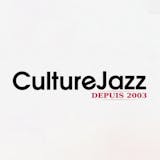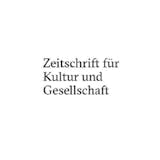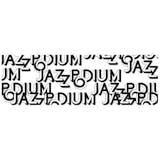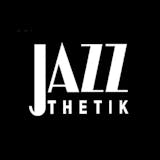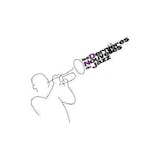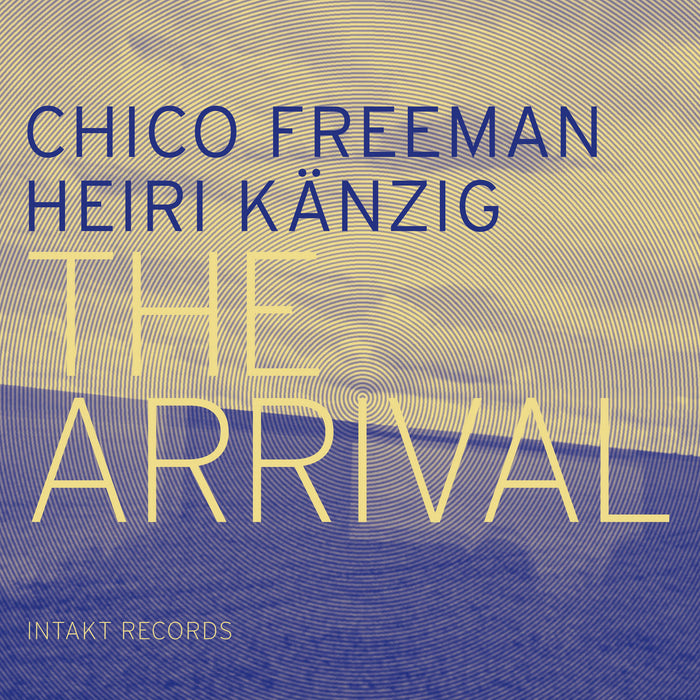
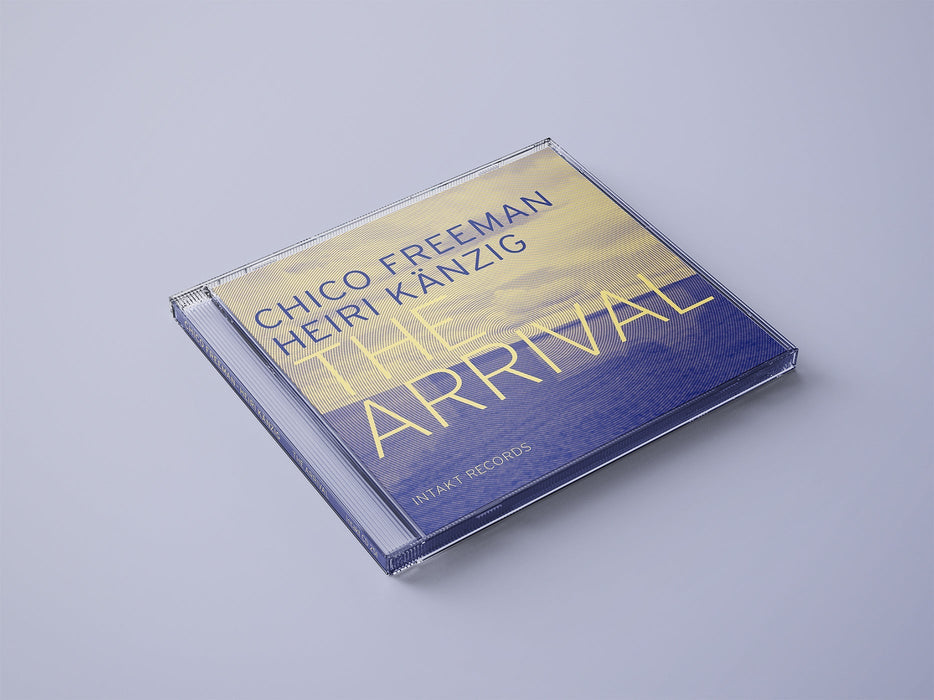
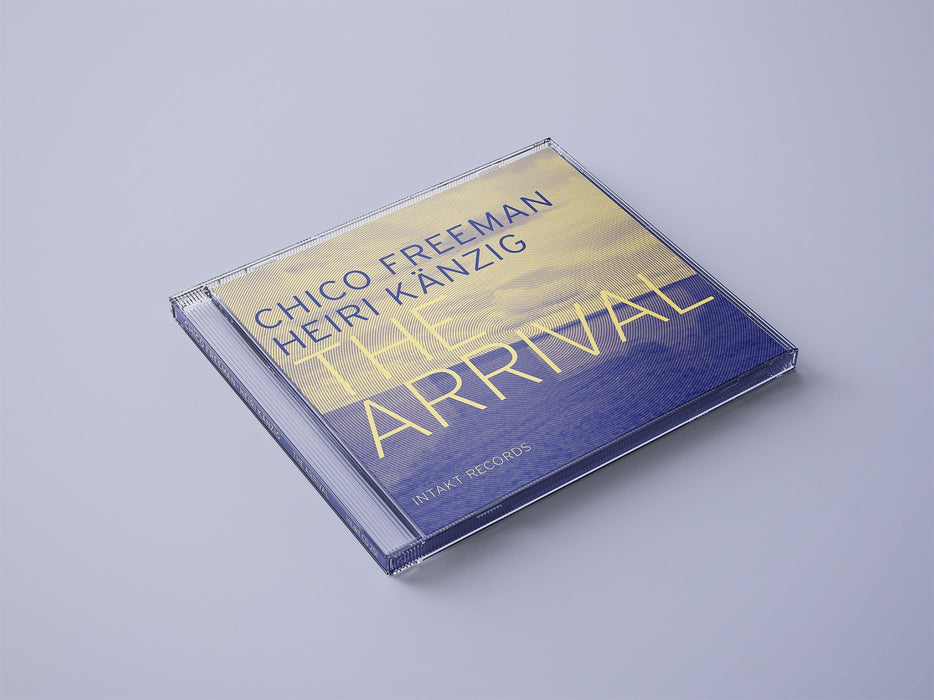
251: CHICO FREEMAN – HEIRI KÄNZIG. The Arrival
Intakt Recording #251/ 2015
Chico Freeman: Tenor Saxophone
Heiri Känzig: Double Bass
Recorded December 13, 14, 2014 at Hard Studios Winterthur.
More Info
A magic duo: Chico Freeman, 65, Saxophoneophonist, clarinettist, flute player, composer from Chicago, an eminent improvisor and Heiri Känzig, 58, born in New York, the Swiss double bass virtuoso. A transatlantic dialogue between one of America’s most versatile Saxophoneophonists and one of Europe’s most ‘all-round’ bass players.
Freeman and Känzig share that passion for the centre of gravity of the Jazz tradition, albeit with one precondition: that of transformation. And, with all their abilities for strong, heavy grooves, there is that preference for melody. „If you groove like hell and there’s no melody, it makes no sense.” (Känzig).
Peter Rüedi writes in the liner notes to The Arrival: „We could also read ‘The Arrival’ as something of an arrival at the centre of Jazz: Jazz, in the present tense. Or as it were: tradition in transition.
Album Credits
Graphic design: Jonas Schoder
Photos: Marcel Meier
Liner notes: Peter Ruedi
Recorded December 13, 14, 2014 at Hard Studios Winterthur by Andy
Nehresheimer for Radio SRF and Intakt Records. Mixed by Andy Nehresheimer. Mastered by Willy Strehler. Produced by Intakt Records, Patrik Landolt.
Chicago groove by way of Switzerland
It's a long way from Shytown and the jazz and blues-drenched shores of Lake Michigan to live in Biel, Switzerland.
But it's a journey that one of the great jazz saxophonists, Chico Freeman, has made.
It's a blessing for European audiences certainly, and hearing Chico during the 2016 London Jazz Festival, it's clear that he has lost none of his Chicago fire and free spirit.
Born in the Windy City in 1949, his father, Von, was himself a powerful tenorist with very much his own sound and two of his uncles were guitarists George and drummer Bruz, a family of masters.
Chico joined the Association for the Advancement of Jazz Musicians as a young man, and the pianist Muhal Richard Abrams became his tutor, sharing his love for free improvisation with the young prodigy.
In 1977 he moved to New York, playing with stellar musicans like Sun Ra, pianist Don Pullen, reedman Sam Rivers and his drumming compadre Jack DeJohnette.
He also cut a series of innovative albums for the India Navigation and Contemporary labels, including one for Elektra whose title epitomised his approach: Tradition in Transition.
His 2016 album, The Arrival, recorded in Winterthur, Switzerland, finds him in a duo context with the New York-born Swiss bassist Heiri Kaenzig, himself a veteran who has played with some of the prime Europe- based jazz musicians from Art Farmer and Kenny Wheeler to Charlie Mariano and Art Lande.
Kaenzig proclaims his love of melody in the album's sleeve notes: "If you groove like **** and there's no melody, it makes no sense."
The opener is Kaenzig's tune, remembering another Chicago saxo- phonist, Eddie Harris, who pioneered the electrified horn, One for Eddie Who 2.
The bass leaps and bounds while Freeman's horn blows out patterns of notes in rapid clusters to create a keen-edged colloquy.
Kaenzig is also the writer of Early Snow. His love of melody is lucid in his solo preface, enhanced by Freeman in a contradictorily warm chorus.
Here are different snows: American and Swiss, beheld and described in sound together, two continents of cold.
Freeman is the composer of the next three tracks. The Essence of Silence is anything but that.
Freeman's simple theme is grounded by Kaenzig's repetitive rhythmic phrases as he blows with a tender strength.
Ancient Dancer mixes balm with movement as Chico's horn leans on Kaenzig's pulsating beat, and Will I See You in the Morning? is a slow
ballad with more than a whisper of love. It cries out for words but it is the listener who must make the lyrics.
The sudden burst of familiarity comes with Bobby Timmons's rousing tune which provoked storms at many a Jazz Messengers concert.
But now Timmons's gospel- drenched piano and Art Blakey's drums are far gone, and this version of Dat Dere is a different kind of palaver, between two masters almost reflective, and when Freeman takes fire, Kaenzig's hard-plucked notes answer him with now-times. Not the past.
After the snow, Song for the Sun is a serenely contrived improvisation with Kaenzig's pinging bass strings urging Freeman's own melodic invention as he reaches for the light.
It segues perfectly into Just Play, which is exactly what the twosome do for nearly four minutes racked with invention and shared creative grace. Kaenzig's Eye of the Fly is slow and ruminative, as if bass and saxophone were sonic microscopes.
His solo delves deep but then it is Coltrane's eternal tune, After the Rain.
Kaenzig takes his bow and saws a dramatic introduction before Chico blows the theme with gentle beauty. The melody's subliminal sense of lamentation continues directly into Chico's own To Hear a Teardrop in the Rain, a song of grieving for a lost love, played by the duo with a moving eloquence.
The album's finale is Kaenzig's tribute to the great bop bassman, Paul Chambers. Chambers' Room has Chico's jaunty tone jumping above Kaenzig's sure-footed bassline as if all is very groovy for him in Europe, even though Chicago still breathes out through his every note
C'est également un plaisir de rencontrer, pour la première fois sur Intakt, le grand saxophoniste ténor Chico Freeman pour un autre duo avec un contrebassiste, Heiri Känzig, musicien suisse né à New York – il joue dans le trio de Harry Sokal – dans une expression plus "coulante", moins free si l'on veut. On savoure ce double plaisir, en retrouvant le beau et solide son du ténor lyrique et de grande tradition, en particulier dans les ballades où il excelle : « The Arrival »
http://www.culturejazz.fr/spip.php?article285
Chico Freeman/Heiri Känzig
The Arrival
Intakt Records CD 251
George Freeman/Chico Freeman
All in the Family
Southport S-SSD 014
Sessions involving fathers and children or siblings are common enough in improvised music. But All in the Family is one of the few whose chief protagonists are a nephew and his uncle. Then again like the Midwestern individuality that produced figures like Saul Alinsky and Ernest Hemingway – not to mention a Blues variant and the Association for the Advancement of Creative Musicians (ACCM) – this isn't unexpected.
Centre of the date, plus the duo disc with Swiss bassist Heiri Känzig, is Chicago-born soprano and tenor saxophonist Chico Freeman, now a Biel residence. Son of saxophone legend Von Freeman (1923-2012), the 22 [!] track Freeman and Freeman date also shows off the undiminished guitar skills of his uncle, George, now 88, known for his work with organist Groove Holms among others. An AACM member, who also played in the bands of drummer Elvin Jones and pianist McCoy Tyner, Chico Freeman was more a sound setter than a sound explorer unlike some other AACM associates. Recently he's also turned to restrained standards interpretations. "Angel Eyes" is on the first CD, while The Arrival includes John Coltrane's "After the Rain" and Bobby Timmons' "Dat Dere". Känzig is a wide-ranging stylist who has played in group with flugelhornist Kenny Wheeler and alto saxophonist Charlie Mariano among other modern mainstreamers.
Among the backing players on the Freeman and Freeman CD are questing improvisers like percussionist Hamid Drake and bassist Harrison Bankhead. But with his unique clipped, metallic tone the guitarist is never out of place. Like a Fernand Léger painting in a room filled with Impressionists, the elder Freeman's playing always stands out. And it maintains its individuality when his associates here could be Pop artists or Abstract expressionists. Freeman senior demonstrates that easily on "Interlude V-10", an unaccompanied track, where he sounds like a mixture of Charlie Christian and Jimi Hendrix. Tellingly on "Vonski" his own salute to his brother, and Chico's "Essence of Silence", both duos with his nephew, his brittle chording modernizes King Cole trio swing on the first; while his quickened clinks and sharp string slides appear even more contemporary than the saxophonist's Trane-oriented double tonguing and slurs on the latter.
Otherwise, like the canny retire detective brought in to add his expertise to a difficult crime case, George fits in seamlessly among the players who are two or three decades his junior. Introduced by a walking bass line and buoyed by pianist Kirk Brown's echoing bebop riffs, "Chico" harmonizes clangorous guitar licks and the younger Freeman's soprano saxophone vibrations, which are extended with quotes and theme variations. Using congas as well as drums, Drake shows off his versatility on the swinging "Latin Bonita", with the guitarist stretching his solo from mariachi suggestions to a figurative walk in outer space.
Not to be outdone, guitarist Mike Allemana, who replaces George Freeman on some tracks, moves the tunes with the same solid abandon, especially on "What In Between". An out-and-out foot tapper it's also notable for Chico's solid blowing and Bankhead doing one of his humming-in-tandem-with-string-bowing Slam Stewart-like solos. The younger Freeman, who often references earlier Chicago tenors throughout, demonstrates his ability to go up against the heavyweights when he takes on "Angel Eyes", one of Gene Ammons' signature tunes. Individualized by Brown's keyboard slurs, if it isn't a knock out, it's certainly a good try for a contender.
An invaluable record of top-drawer Chicago jazz, the only quibble would be with the nine brief interludes which separate the longer tunes. While they do demonstrate individual versatility, that doesn't have to be confirmed, and the CD would have been more cohesive without them.
Chico Freeman's command of older and original material is made even clearer on The Arrival. Like sole survivors of a decimated unit who still defeat the bad guys, with the interface pared down to just himself and the bassist, the two manage to produce as memorable music s the larger ensemble. What they have to guard against is torpidity since some of Freeman's compositions have a tendency to drift past relaxation to a form of New Age-like leadenness. With Känzig's mellow bass line providing the backup, tunes such as "The Essence of Silence" and "Will I See You in the Morning", with their pop-music styled titles are so well modulated that they appear headed for folksy romance until reed toughness and calm string strokes provide more backbone.
Like his take on "Angel Eyes" on the other disc, "After the Rain" and "Dat Dere" get respectful and inspired readings from Freeman. The former, featuring sympathetic strumming from the bassist reaches a climax of blown air following some upturned Trane-isms from the saxophonist, while ...
2014 trafen sich der große US-amerikanische Saxofonist Chico Freeman und der Schweizer Bassist Heiri Känzig zu einem sehr entspannten Duo in Winterthur, das Intakt gleich veröffentlicht hat. Dabei wurde aber nicht über das amerikanische Liederbuch gejammt, was bei solchen Meetings häufig üblich ist, sondern jeder brachte einige Originals mit, die durchwegs von Eigenart und Besonderheit sind. Lediglich jeweils ein Stück von Bobby Timmons und John Coltrane sind gleichsam Fremdlinge. Das Duo hat Nähe und Intimität, als würde die beiden seit Jahren nichts anderes tun, als miteinander zu musizieren. Die zwölf Tracks sind leicht verdauliche Drei- bis Fünfminuten-Häppchen, manche voll Sonnenaufgangsmelancholie (Track 3, The Essence of Silence), andere sind zügiger intoniert (Track 8, Just Play). Das ist jetzt nicht die Speerspitze der Avantgarde, aber die Eleganz des Saxofons und der volle, fast fette Ton des Basses munden ausgezeichnet. Der Tonfall ist leichtfüßig, selbstverständlich und, wie gesagt, sehr entspannt.
A very welcome return for the Chicagoan multi-reed player who was one of the key figures on Elektra Musician, a pivotal label of the 1980s. Setting aside the bass clarinet and flute to focus solely on the tenor saxophone Freeman is on good form and has a very simpatico partner in German - double bassist Heiri Kanzig. As the recent release by Oliver Lake and William Parker showed there is much to be gained from this relatively uncommon pairing of instruments, and the Freeman- Kanzig duet has comparable strength of character. Freeman's tone is lithe and sensual, with a spacious phrasing that is as effective on the pastoral ballads as it is on the more dance-oriented pieces such as the funky 'One For Eddie Who 2'. As for Kanzig his comping is very good, and his ability to enhance his ostinatos with the most subtle melodic fills or chordal colours brings a lot to the performance, the highlight of which is a quite sumptuous Freeman original 'The Essence Of Silence', which is practically a segue of Coltrane's 'Equinox' and McCoy Tyner's 'Contemplation'. Lastly, major props must go to soundman Andy Neresheimer whose mix is such that at times both instruments seem to glow out of the speakers and radiate right into your front room.
Nouveauté. Voilà bien longtemps qu'on n'avait plus entendu parler de Chico Freeman. Enfant chéri des programmateurs, de la fin des années 70 au milieu des années 80, le ténor fit encore quelques tours de piste au sein des Leaders puis disparut dans une université américaine dont personne ne songea à le tirer pour parcourir l'Europe. Les programmateurs ont leurs chouchous, qu'ils installent sur scène puis poussent à tour de rôle vers la sortie : le public est friand de chair fraî che, n'est-il pas? Pour ce qui est de Freeman, je doute qu'à part quelques fans indécrottables, grand monde ait regretté sa "disparition". Jeune loup en pleine ascension, il n'arriva jamais à la hauteur de son père Von et, la limite d'âge atteinte, ses limites devinrent plus qu'apparentes. Qu'en est-il de ce quasi comeback, dans la formule périlleuse du duo, de surcroît ? Pour tout dire, c'est Heiri Kaenzig - bassiste d'une robustesse et d'une finesse à toute épreuve qui a abondamment é****é les scènes et les studios d'Europe qui, comme on dit, "tient la baraque". A l'intérieur, un souffleur sexagénaire caresse l'anche de son ténor avec une souplesse et une langueur de bon aloi. Mais qui est ce souffleur? Difficile de l'identifier tant il se coule dans un moule anonyme. Ou comment prendre de l'âge sans gagner en personnalité.
Die Kunst des Duos in ihrer höchsten Ausprägung zelebrieren der tief in Chicago verwurzelte, aber mittlerweile in Biel lebende Saxophonist Chico Freeman und der Schweizer Kontrabassist Heiri Känzig. Regie führte zuerst allerdings einmal der Zufall, da die beiden nur aufeinander trafen, weil Känzig in Freemans Quartett kurzfristig für den ausgefallenen Bassisten einsprang. Dabei spürten sie auf Anhieb, dass nicht nur die Chemie, sondern auch die musikalischen Auffassungen wunderbar harmonierten. Känzigs melodienorientierten, nahezu singenden Bassgrooves und die enorm ausdrucksstarken und facettenreichen Melodielinien Freemans verschmelzen zu atmosphärisch dichten Stimmungsbildern und unaufgeregten, aber dennoch ungemein spannenden Dialogen. Beide gehen mit einer uneiteln Souveränität zu Werk und vermögen aus einem ungemein reichen Erfahrungsschatz zu schöpfen, der jegliches hierarchische Denken obsolet macht. So steuern sowohl Freeman als auch Känzig je vier Eigenkompositionen bei, letzterer unter anderem Hommagen an Jazzgrößen wie Eddie Harris, Paul Chambers oder Fritz Pauer. Dazu kommen wie der Titel „Just Play" schon andeutet zwei Stücke, die aus freien Improvisationen entstanden sind. „Dat Dere" des legendären „Art Blakey's Jazz Messengers"-Pianisten Bobby Timmons und eine einfallsreiche Neuinterpretation von John Coltranes „After The Rain", das dieser erstmals 1963 auf seinem legendären Album „Impressions" veröffentlicht hatte, fügen sich nahtlos in das Hörvergnügen ein. Mit „The Arrival" sind zwei exzellente Musikerpersönlichkeiten wirklich angekommen. So ist es nur logisch, dass der Zeigefinger nach den letzten beiden Stücken, der ungemein gefühlvollen Freeman-Ballade „To Hear A Teardrop In The Rain" und Känzigs spritzig-witziger Uptempo-Nummer „Chamber's Room", unweigerlich den Weg zur Repeat-Taste findet.
„Just Play" heißt ein Stück des neuen Duo-Albums von Chico Freeman und Heiri Känzig. In der Kollektivimprovisation sind sich der amerikanische Saxophonist mit aktuellem Wohnsitz Schweiz und der Schweizer Bassist mit einstigem Wohnsitz New York sehr nah. Auch auf dem weiteren knapp Dutzend Stücken, von denen einige gemeinsam geschrieben, bzw. erarbeitet worden sind, begegnen sich die beiden Musiker auf Augenhöhe. Der Bass bildet die Basis genauso wie er sich über den Saxophonton erhebt und eigenen Gedanken nachhängt. „Instruktives Einverständnis" (Booklet) herrscht und zieht sich wie ein roter Faden durch das gesamte Album. In Coltranes Ballade „After the rain", dem einzigen Standard des Albums überhaupt, zeigt Freeman, dass er dessen Erbe hochhält, längst aber zu anderen Ufern wie Free und Blues aufgebrochen ist. Dass das Duo so brillant funktioniert, hat auch mit Känzigs Fähigkeiten des Einfühlens zu tun, die er im Lauf der Jahre an der Seite diverser Jazzgrößen gewonnen hat. Als er vor zwei Jahren erstmals mit Freeman zusammentraf und mittlerweile fest zu dessen Quartett gehört, ist der kreative Funke sogleich übergesprungen. Die Ankunft, wie der CD-Titel verheißt, ist geglückt.
Quelques mois après la parution en Autriche d'un disque en quartette (« Spoken Into Existence », Jive Music JM-2080-2, www.jivemusic.at ), Chico Freeman publie sous étiquette suisse un duo avec le contrebassiste dudit quartette, Heiri Känzig. Et c'est tant mieux, car les amateurs se languissaient du saxophoniste, qui a fait en juillet dernier des prestations remarquées en France, au festival Jazz à Vienne. C'est en 2013 que les deux musiciens se sont rencontrés, à Lausanne, quand le saxophoniste cherchait un bassiste pour son « 4-tet » (Fourtet, ainsi appelle-t-il ce groupe, auquel s'associent le pianiste Antonio Farao et la batteur Michael Baker). Parallèlement à cette collaboration en quartette, qui se poursuit, le saxophoniste a voulu installer avec son bassiste un dialogue, qui se révèle très fécond. Chacun apporte ses compositions : pour Heiri Känzig un hommage à Paul Chambers (Chamber's Room), un autre à Eddie Harris (One For Eddie Who 2, extrapolé d'une des compositions du contrebassiste pour le groupe « Depart »), et aussi Eye of the Fly, issu de son premier CD en 1994.... ; pour Chico Freeman The Essence of Silence, un thème qu'il avait enregistré en duo avec le pianiste autrichien Fritz Pauer, et de nouvelles compositions, comme cette ballade qui pourrait devenir un standard (Will I See You In The Morning). Et des plages co-signées, comme le très spontané Just Play, qui dit assez la connivence où sont les deux hommes. Des reprises également, avec Dat Dere, de Bobby Timmons, immortalisé naguère par les Jazz Messengers, mais aussi par une version vocale d'Oscar Brown Jr. ; et le magnifique After The Rain de John Coltrane (album « Impressions »), traité avec l'intense lyrisme qui convient. Au total une belle réussite, qui rappelle à bon escient que le jazz (et le duo l'exacerbe) est d'abord la communication des êtres et des consciences.
http://www.lesdnj.com/2015/09/chico-freeman-heiri-kanzig-the-arrival.html


